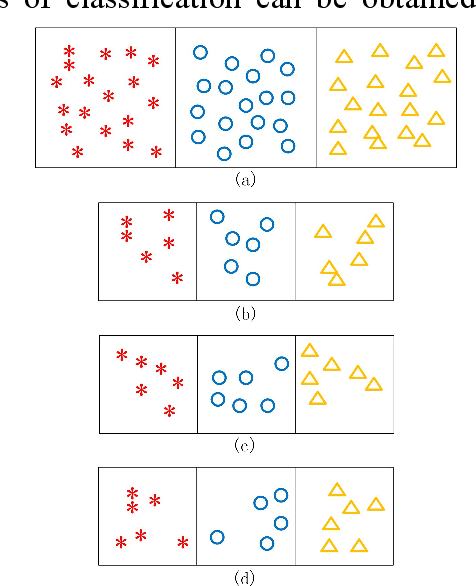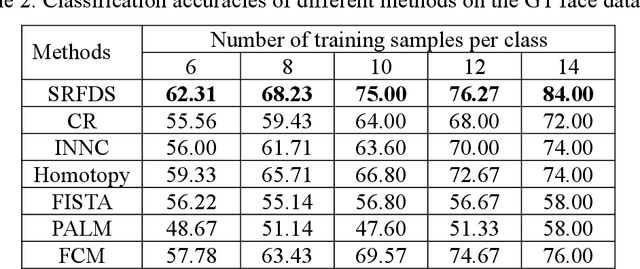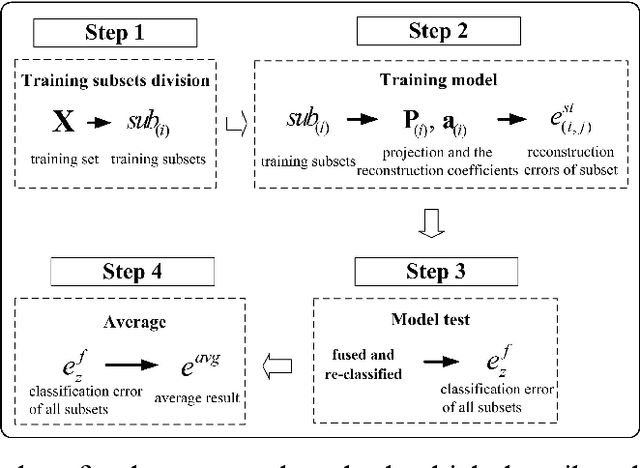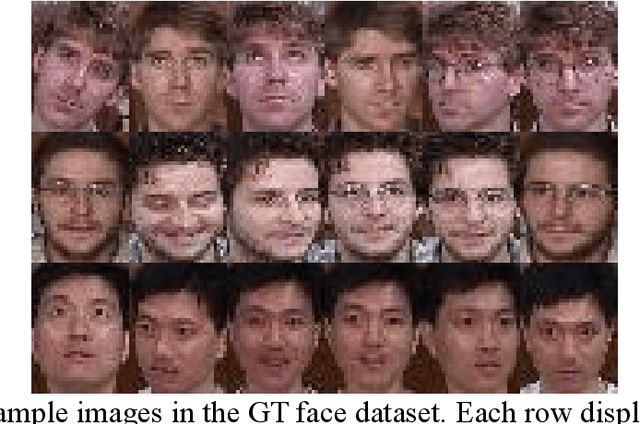Robust Classification with Sparse Representation Fusion on Diverse Data Subsets
Paper and Code
Jun 10, 2019



Sparse Representation (SR) techniques encode the test samples into a sparse linear combination of all training samples and then classify the test samples into the class with the minimum residual. The classification of SR techniques depends on the representation capability on the test samples. However, most of these models view the representation problem of the test samples as a deterministic problem, ignoring the uncertainty of the representation. The uncertainty is caused by two factors, random noise in the samples and the intrinsic randomness of the sample set, which means that if we capture a group of samples, the obtained set of samples will be different in different conditions. In this paper, we propose a novel method based upon Collaborative Representation that is a special instance of SR and has closed-form solution. It performs Sparse Representation Fusion based on the Diverse Subset of training samples (SRFDS), which reduces the impact of randomness of the sample set and enhances the robustness of classification results. The proposed method is suitable for multiple types of data and has no requirement on the pattern type of the tasks. In addition, SRFDS not only preserves a closed-form solution but also greatly improves the classification performance. Promising results on various datasets serve as the evidence of better performance of SRFDS than other SR-based methods. The Matlab code of SRFDS will be accessible at http://www.yongxu.org/lunwen.html.
 Add to Chrome
Add to Chrome Add to Firefox
Add to Firefox Add to Edge
Add to Edge